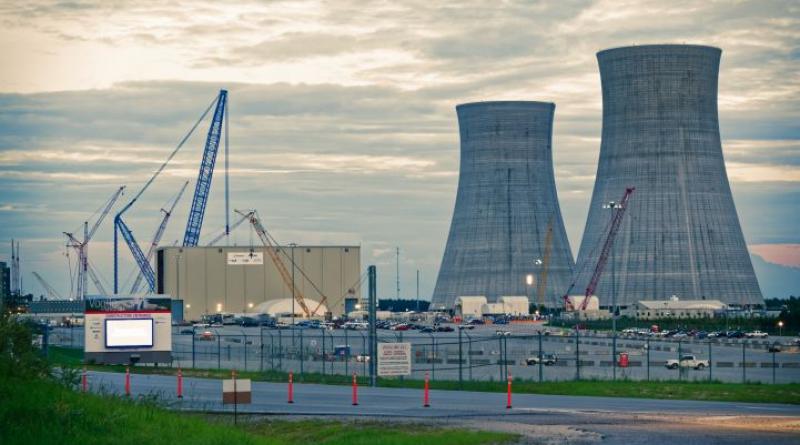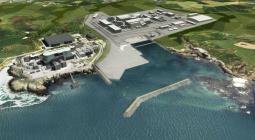Nuclear Energy Institute Seizes on Climate Momentum to Push for Policy Boost.

“The answer to the climate crisis won’t be as simple as replacing carbon with renewables and batteries,” according to NEI’s president and CEO.
In an annual briefing on the state of the nuclear industry, Nuclear Energy Institute President and CEO Maria Korsnick laid out a vision of a glowing future for the technology — if the industry receives the proper investment and policy support.
Korsnick argued that nuclear’s cultural capital is on the rise, helped along by concerns about climate change and calls for 100 percent clean energy, but she suggested the industry needs better federal and state policy to grow.
“The bottom line is this: Even the best-designed nuclear technology won’t each its potential if it’s held back by poorly designed regulations,” said Korsnick. “If our leaders don’t implement the right regulations to get these technologies to market, all of these benefits might pass us by. We can’t let that happen, because there is no responsible solution without nuclear.”
The speech struck a tricky political balance, arguing for the essential role of nuclear in combating climate change while simultaneously applauding the efforts of the Trump administration, which has reneged on numerous climate regulations, for its commitment to “ensuring that America is energy-dominant.”
The briefing came just days after Energy Secretary Rick Perry announced $3.7 billion in additional loan support for the expansion of the Vogtle nuclear plant in Georgia. The loan guarantees are part of a program that the administration’s latest budget, released this month, proposed eliminating altogether.
Supporting nuclear for grid resilience
Vogtle is a polarizing but important point of focus for the nuclear industry’s future. The Georgia expansion is the only large-scale nuclear project underway in the nation — another, V.C. Summer in South Carolina, was canceled in 2017 — and the first to be built in the U.S. in decades. It’s also billions of dollars over budget and significantly behind schedule, in part because key contractor Westinghouse announced Chapter 11 bankruptcy during construction.
In announcing the financial support in Georgia, Perry touched on themes he’s frequently boosted as DOE secretary, saying, “a strong nuclear industry supports a reliable and resilient grid.” At a recent energy conference in Houston, Perry said the administration is still working on a plan to support coal and nuclear plants to provide grid resilience.
The administration’s focus on supporting nuclear power alongside coal has stirred controversy. But Korsnick argued that “saving nuclear plants is not a bailout…it’s helping to right wrongs in an increasingly distorted energy market. It’s a recognition that we must value nuclear in the same way we value other zero-carbon sources of generation.”
To do so, Korsnick said more states should follow Connecticut, New Jersey, New York and Illinois in allowing nuclear plants to compete as carbon-free sources or receive credits. Efforts to advance similar policies failed in Minnesota and are currently underway in Ohio and Pennsylvania.
Supporting nuclear to solve the climate crisis
Though environmental groups have mixed views on nuclear, groups in both Ohio and Pennsylvania have spoken out against the support packages.
But Korsnick said a boost in conversations around climate action, the Green New Deal and state-level clean energy goals is bringing more positive attention to the technology.
“It’s this realization that 100 percent renewables — it’s not going to happen,” she said.
Not everyone agrees. On Monday, Puerto Rico committed to 100 percent renewables, joining Hawaii and Washington, D.C. Illinois is considering a similar measure.
“As the climate changes, so do opinions,” Korsnick added, noting support for nuclear among environmental groups like the Nature Conservancy, international climate bodies like the United Nations Intergovernmental Panel on Climate Change, and from advocates for climate action such as the Union of Concerned Scientists.
“The answer to the climate crisis won’t be as simple as replacing carbon with renewables and batteries,” argued Korsnick. “The answer must include nuclear.”
26 March 2019






